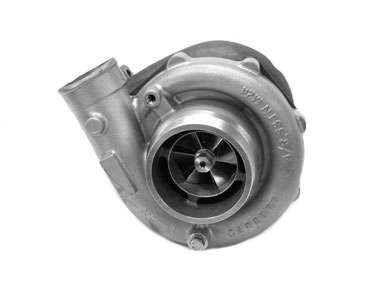well what you failed to realize is that i did agree with Machin on the subject. The car's acceleration would be the same.Sayshina wrote:Several things to say, guess I have to start somewhere. And yes, I know I am digging up a dead and buried horse to beat it again, but I actually do have a point to make.
Ringo, Machin was talking about a theoretical constant power machine, which does not currently exist. He mentioned in passing that it would gain no benefit from a transmission. You argued that point with him. You then, in your OWN calculations, noted that with his theoretical constant power machine, which does not exist at present, as the rpm's aproached 0 the torque aproached infinity. You then said something to the effect of "that doesn't look right" and never mentioned it again.
However, you continued to argue that this theoretical, nonexistant constant power maching would still benefit from multiplying whatever torque through a transmission. And this is where we get to my point.
You aparently did not pause for a full second to ponder the ramifications of your own calculations. You glanced at them, concluded that they didn't look right, and moved on. This is really important, because it's a mistake that's been made by thousands of fully qualified engineers, doctors, scientists, anyone and everyone who has ever had need or cause to "do the math". It's caused god only knows how many fatalities throughout history.
A theoretical constant power machine, which does not exist at present, would indeed see it's torque aproach infinity as it's rpm's aproached 0. This is by definition. Now attach whatever reduction gear you please, and multiply this machines torque by the correct factor. What do you get when you multiply infinity by X?
I don't mean to be pedantic, but this really is an important issue considering you seem to be either in a field requiring you to "do the math" or in training for one. You did the math, didn't like the answer, blew it off, and juggled the figures until the results looked more "right". That's the cardinal sin, man.
Now, when Machin posited this whole thing to begin with, he mused over the possibility of 2013 cars running fewer transmission ratios. Someone countered that all cars run the maximum number of ratios allowed. This is demonstrably false. Before there were 7 speed boxes, there were 6 speed units, with no rule limiting the number of ratios. They could have run more, they just didn't feel the need.
Historically, the number of forward ratios is superficially tied to powerband, but since that is in large part a user tunable comodity, you'd really have to say it's tied to how long it takes to shift and how dangerous that shift is. In a world of multi second shifts and very fragile transmissions, you tend to have 2 or maybe 3 forward ratios and large displacement forced induction engines. If you can manage to shift fewer times than the other guys there's a very real chance that's all you need to win.
All indications are that the future engine will be capable of a very broad powerband compared to anything that's been hooked up to a 7 speed F1 gearbox. Complexity is still the enemy of reliability, so is it possible future cars will have fewer forward speeds without a rule mandating it?
Well if this were a few years ago and transmission failures were still a common occurance, I'd say not only possible but nearly guaranteed. But there is a maximum reliability that any human assembled system is capable of, and todays units are pretty darned reliable. They also shift so quickly and have so little impact on the cars handling that you'd have to have a very good reason for fooling with them. The only way I see using fewer forward ratios is for a Williams type installation, where they need the volume for aero reasons.
Oh, and White Blue, this one really is pedantic, but I'm fairly certain there is not a driver on the grid who wants his brakes to break, or for that matter have his car break while he's on the brakes.
More than one gear makes sense only at the initial move of, since we are dealing with a car that can have infinite torque, and simply cannot idle at zero engine speed. An extra high gear may make traction possible at move off with such high torque.
The single gear can be used for whatever top speed is needed.
I did not juggle anything. The engine accelerations vary with different gears. That was my only mistake. I don't fool around with numbers.
I am not shy to say i made a mistake. The truth is the truth.





